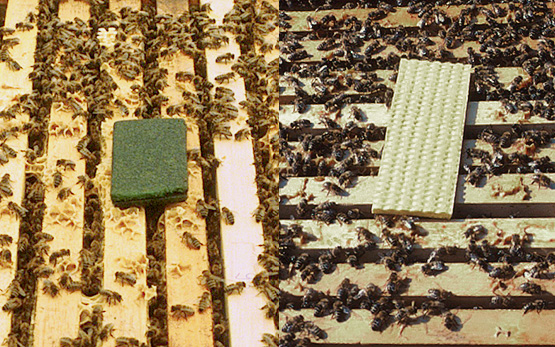Herrmann M. K., Mehner E., Egger C., Portmann R., Hammer L., Nemecek T.
A comparative nutritional life cycle assessment of processed and unprocessed soy-based meat and milk alternatives including protein quality adjustment.
Frontiers in Sustainable Food Systems, 8, 2024, 1-15.
Reiche A.-M., Martín-Hernández M. C., Spengler Neff A., Bapst B., Fleuti C., Dohme-Meier F., Hess H. D., Egger C., Portmann R.
The A1/A2 β-casein genotype of cows, but not their horn status, influences peptide generation during simulated digestion of milk.
Journal of Dairy Science, In Press, 2024, 1-13.
Santos-Sánchez G., Miralles B., Brodkorb A., Dupont D., Egger C., Recio I.
Current advances for in vitro protein digestibility.
Frontiers in Nutrition, 11, 2024, 1-15.
Guggisberg D., Egger C., Bosshart A., Fehér N., Eggerschwiler L., Schmidt R., Portmann R.
Impact of κ-casein phenotypes on chymosin-induced milk coagulation properties: Application of diffusing wave spectroscopy.
In: International conference for cheese science and technology (Bergen, 3.-7.6.2024). 3. June, Bergen. 2024.
Guggisberg D., Egger C., Bosshart A., Fehér N., Eggerschwiler L., Schmidt R., Portmann R.
Impact of genetic κ-casein variants (A, B, E) on chymosin-induced milk coagulation properties: Application of a new LC–MS-based genotyping method.
International Dairy Journal, (155), 2024.
Hammer L., Moretti D., Bétrix C.-A., Kandiah P., Pellegri A., Abbühl-Eng L., Portmann R., Egger C.
In vitro DIAAS of Swiss soybean cultivars using the INFOGEST model: Increase in protein quality from soybean to soymilk and tofu.
Food Research International, 178, 2024, 1-12.
Portmann R., Sousa R., Brügger C., Egger C.
Qualität vor Quantität: Protein Bioverfügbarkeit und Messung der Verdaulichkeit.
In: Forum MIlchveranstaltung. 28. November, Liebefeld. 2023, 1-18.
Egger C., Brügger C.
Determination of alkaline phosphatase activity, fluorimetric microplate method: Milk and milk products.
In: ISO/IDF Webinar on Alkaline Phosphatase. 14 November, online. 2023, 1-12.
Egger C., Hammer L., Marques de Sousa A. R., Portmann R.
In vitro digestibility and protein quality assessment, the example of edible insects: History pitching success story.
In: AGRO FOOD innovation forum. 19 September, Zürich. 2023, 1-9.
Egger C., Portmann R.
In vitro digestion protocol for the analysis of protein digestibility and in vitro digestbile indispensable amino acid score (DIAAS): Status Update Project C50 Milk and Milk products.
In: ISO/IDF Analytical Week 2023, Chicago. 13 October, Chicago. 2023, 1-5.
Marques de Sousa A. R., Portmann R., Dubois S., Recio I., Egger C.
Digestibility of meat analogues and the influence of processing: In vitro digestibility.
In: Symposium on Dietary Protein for Human Health. 14 October, Utrecht. 2023, 1.
Egger C., Marques de Sousa A. R., Portmann R.
Inter-laboratory comparison of in vitro protein digestibility based on the static INFOGEST method: Ringtrial on protein digestibility.
In: Symposium on Dietary Protein for Human Health. 14 October, Utrecht. 2023, 1.
Portmann R., Egger C.
A multi-centre peptidomics investigation of food digesta: Current state of the art in mass spectrometry analysis and data visualisation.
Food Research International, 169, 2023, 1-10.
Romanò A., Ivanovic I., Segessemann T., Vazquez Rojo L., Widmer J., Egger C., Dreier M., Sesso L., Vaccani M., Schuler M., Frei D., Frey J., Ahrens C., Steiner A., Graber H. U.
Elucidation of the bovine intramammary bacteriome and resistome from healthy cows of Swiss dairy farms in the Canton Tessin.
Frontiers in Microbiology, 14, 2023, 1-25.
Hammer L., Moretti D., Abbühl-Eng L. C., Kandiah P., Hilaj N., Portmann R., Egger C.
Mealworm larvae (Tenebrio molitor) and crickets (Acheta domesticus) show high total protein in vitro digestibility and can provide good-to-excellent protein quality as determined by in vitro DIAAS.
Frontiers in Nutrition, 10, 2023, 1-16.
Menard O., Lesmes U., Shani-Levi C. S., Calahorra A. A. , Lavoisier A., Morzel M., Rieder A., Feron G., Nebbia S., Mashiah L., Andres A., Bornhorst G., Carrière F., Egger C., Portmann R. und weitere
Static in vitro digestion model adapted to the general older adult population: An INFOGEST international consensus.
Food and Function, 14, (10), 2023, 4569-4582.
Marques de Sousa A. R., Portmann R., Recio I., Dubois S., Egger C.
Comparison of in vitro digestibility and DIAAR between vegan and meat burgers before and after grilling.
Food Research International, 166, 2023, 1-7.
Berger T., Badertscher R., Egger C.
Jahresbericht NRL - Milch und Milchprodukte (MMP), 2020: Bericht z.H. BLV und ERFA.
Hrsg. Agroscope, 31.01., 2023
Berger T., Egger C., Fleuti C.
Jahresbericht NRL: Milch und Milchprodukte (MMP).
Hrsg. Agroscope, 31.01., 2023, 7 S.
Marques de Sousa A. R., Recio I., Heimo D., Dubois S., Moughan P. J., Hodgkinson S. M., Portmann R., Egger C.
In vitro digestibility of dietary proteins and in vitro DIAAS analytical workflow based on the INFOGEST static protocol and its validation with in vivo data.
Food Chemistry, 404, 2023, 1-11.






